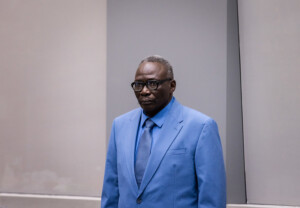Psychiatrist deplores increased incidents of torture in Sudan
The number of victims of maltreatment and torture by the authorities is rapidly increasing in Sudan, says Sudanese psychiatrist Amal Jabrallah.
On the occasion of the International Day in Support of Victims of Torture on June 26, Jabrallah told Radio Dabanga that the increased maltreatment of activists “aims to break them, in order to get confessions”.
 Dr Amal Jabrallah (Radio Tamazuj)
Dr Amal Jabrallah (Radio Tamazuj)
The number of victims of maltreatment and torture by the authorities is rapidly increasing in Sudan, says Sudanese psychiatrist Amal Jabrallah.
On the occasion of the International Day in Support of Victims of Torture on June 26, Jabrallah told Radio Dabanga that the increased physical maltreatment and torture of pro-democracy activists and demonstrators “aims to break the revolutionaries in order to get confessions and to fabricate charges”.
She criticised the failure of the authorities of the transitional period* to address the practice of torture by government forces, in particular those of the security service.
The authorities should have researched and disclosed the locations of “the torture centres and ghost houses, who founded them and those in charge of them,” Jabrallah said. “They should have held accountable those who committed crimes of torture that led to the death of some and the injury of others with severe physical and psychological effects.
“The impunity of the government forces leads to more human rights violations,” she added.
The psychiatrist called for “more efforts to be made to uproot the phenomenon of torture from Sudan and to provide all forms of support to the victims [..] in order to save our youth from the destructive effects of the expanding forms of torture and to protect our society”.
'The impunity of the government forces leads to more human rights violations' – Amal Jabrallah
Earlier Radio Dabanga reported about the torture of Mohamed Adam, nicknamed Tubak (spelled Tupac on social media), and Mohamed El Fateh, nicknamed El Nana, who were 17 and 18 years old when they were violently detained in Khartoum on January 14 and accused of stabbing a police officer to death during the January 13 anti-junta demonstrations.
For the first three weeks of their detention, they were held incommunicado without access to their families, lawyer, or a doctor. Throughout their detention, both activists were subjected to torture in order to obtain a confession. In mid-March they went on a hunger strike in protest against the excessive maltreatment in prison. Their trial has been postponed to end June.
* The transitional period was originally a period of 39 months during which a civilian-led government would restore work on restoring democracy and rebuild the country following the ousting of the 30-year regime of dictator Omar Al Bashir (1989-2019). It began in August 2019, when the Forces for Freedom and Change signed a joint agreement with the military junta to rule the country by a joint military-civilian Sovereignty Council, and would end with general elections. In October 2021 however, the military, together with a number of former rebel movements, took over power again in a coup d’etat. The pro-democratic members of the Council of Ministers headed by PM Abdallah Hamdok resigned in November. Hamdok announced his resignation on January 2 this year.











 and then
and then